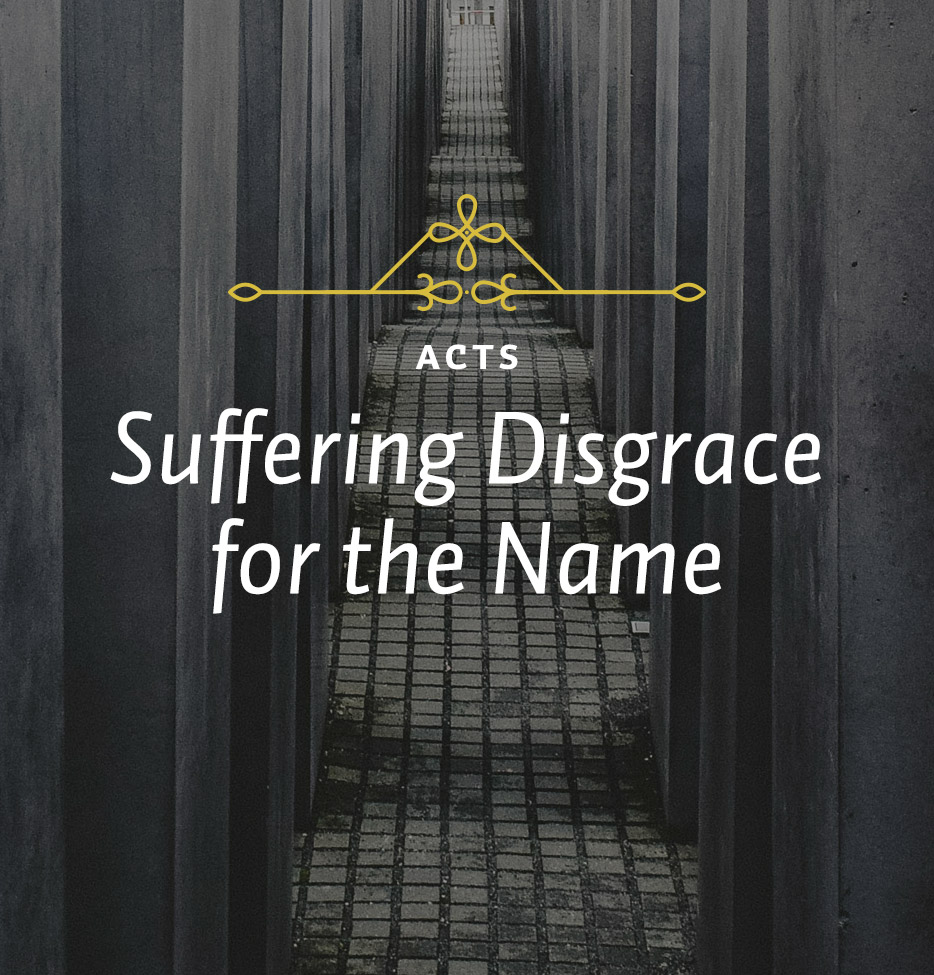The leaders moved against the apostles again, only this time more forcefully than before. The first time they hauled them in and made threats. They said, “Don’t preach anymore. If you do, you’re going to get in trouble.” The disciples continued to preach about Jesus. The next thing they did was arrest them again and unleash a proceeding that eventually ended in the apostles being beaten. What else could they do? They had no options, only force. That is why a procedure like this almost always leads to an attempt to kill people who are not liked. If it were simply a matter of truth contending with falsehood, the result would be a free and open debate. That is not what was going on. This was hatred born of jealousy. Since they were unable to contend with the disciples on the level of truth, they resorted to naked authority and force. First, “Don’t do it. If you do, we’re going to arrest you.” Second, a beating. Ultimately, death.
That is what happens in the next chapter. They arrest Stephen, who in the meantime has emerged as an effective orator. They put him on trial and kill him. He becomes the first martyr. But even in this chapter we read that the leaders were so furious with the apostles that they wanted to put them to death, and would have were it not for the unexpectedly gentle speech of Gamaliel.
If we are very angry about something, especially in religion, it is probably a sign that we are on the wrong track. There is such a thing as righteous anger, of course. The Lord had that kind of anger against those who were keeping others from the truth, who were setting up barriers for them and making merchandise of spiritual things. There is righteous anger. That is why I say that anger probably shows that we are on the wrong track. But when anger is not righteous (and it usually is not), generally that is a sign that something is wrong and that we need to deal with it. The leader’s anger was an indication that something was wrong in this case.
Verse 26 tells us that they brought the disciples in carefully, because the apostles were popular and the leaders were afraid. Afraid of what? The verse says, “They did not use force, because they feared that the people would stone them.” Isn’t that interesting? They wanted to do away with the apostles, probably by stoning, as they were soon to do with Stephen. But here they are, afraid that the people would try to stone them instead.
At several points before this, now and later, they put the disciples in jail. They thought that if they could bind them, they could bind the Gospel. They could keep the message from getting out. What a lesson there is here! Binding the messengers never binds the message. The Bible says that the Word of God is not bound. Nothing physical can ever bind the Gospel. It is free, and it has spread throughout the whole earth.
When they were ready to proceed with the trial, they sent the captain of the guard to bring the disciples out of jail and into court. But when he got to the jail there were no apostles. They were gone. Luke tells us what happened. God sent His angel during the night, and he opened the doors of the jail and brought the disciples out. This was somewhat different from the time when Peter was delivered. In his case the locks fell off and the doors flew open. Here the angel opened them and then apparently locked them again, because when the officers came to the jail they “found the jail securely locked, with the guards standing at the doors” (v. 23). They had to report to their superiors that they just weren’t there.
Here the situation becomes humorous, at least it seems so to me. The leaders were standing around in the council chamber, having sent for the apostles and having it reported that they were no longer there. They were saying, “What are we going to do now? How are we going to find them?” When suddenly, someone came in and said, “It’s not going to be hard to find them. I can tell you exactly where they are. They are back in the temple courts preaching. They are in the same place they were the last time you tried to arrest them.” So they went out and arrested them again. They brought them before the Sanhedrin once more, and again they began their accusations.






